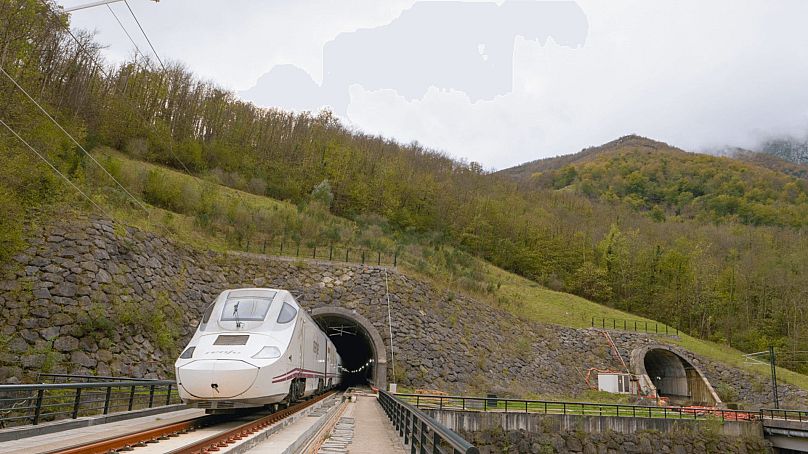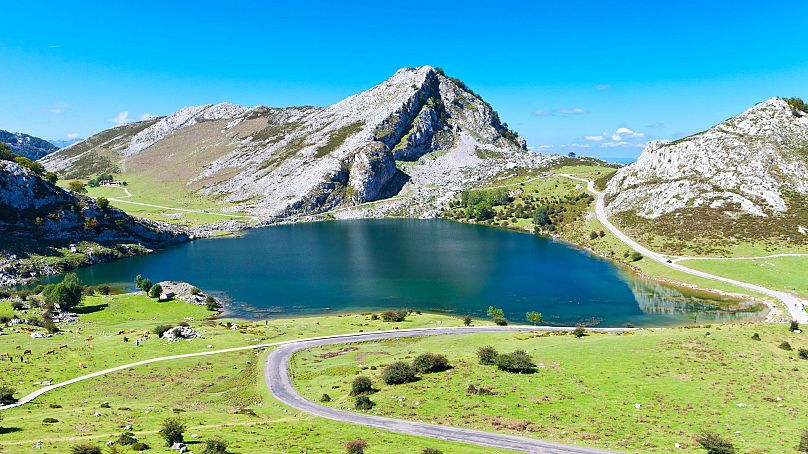Spain opens high-speed railway after 20 years under construction.
After 20 years under construction, the Pajares rail tunnel in northwest Spain is finally open.
 ADVERTISEMENT
ADVERTISEMENT
 ADVERTISEMENT
ADVERTISEMENT
The €4 billion project brings high-speed train connections to the province of Asturias, plugging the gap with León and reducing the travel time to Madrid by over an hour.
The nearly 25 km Pajares Base Tunnel is the seventh longest in Europe. It forms part of the almost 50 km Pajares Bypass between Pola de Lena in Asturias and La Robla in León.
Serving both passenger and freight traffic, the bypass features 12 tunnels - accounting for 80 per cent of the route - through the imposing Cantabrian Mountain Range, along with 10 viaducts.
It is hoped it will help reduce CO2 emissions by shortening train journey times and making it more attractive to travel by land than air.
Spain’s government estimates that ticket sales on the line will reach 1.25 million in its first year.
Here’s why you should book a trip on the new Asturias line.
Asturias is ripe with adventure
Asturias is renowned for its rugged coastlines, plunging valleys, soaring mountain peaks and traditional villages.
But parts of the province have struggled with population decline in recent years. To boost the local economy, the town of Ponga even launched a scheme paying people to relocate there.
But now Asturias is more accessible, it’s likely to draw adventure tourists looking to explore its lakes, mountains and beaches.
In the heart of the Cantabrian Mountains, Las Ubiñas-La Mesa is a UNESCO-designated biosphere reserve. As well as providing sanctuary for rare and threatened plants and animals, including brown bears and the western capercaillie grouse, it boasts rock paintings from the Bronze and Iron Ages.
Asturias is also home to Picos de Europa National Park, an inhabited nature reserve famed for the glacial Covadonga lakes.
What to eat and drink in Asturias
With a coastline stretching more than 400 km - dotted with quaint fishing villages and around 200 beaches - Asturias is renowned for its fresh seafood.
Head to the fish auction houses in Llanes and Bustio, where you can sample the catch of the day in the top-floor restaurant.
Wash down your meal with a glass of DOP cider. Asturias is Spain’s cider capital and produces 80 per cent of the country’s supply. Visit Gijon in August for the annual Natural Cider Festival, a week-long event featuring tastings, apple markets and cider pouring contests.
Spain’s commitment to high-speed rail
The new high-speed train link between Asturias and León is part of Spain’s wider commitment to improve the country’s network.
With a network spanning more than 4,000 km, Spain has the most extensive high-speed rail in Europe and is second only to China worldwide.
Further lines are planned in places including Cantabria, the Basque Country, Extremadura and Navarra, along with the potential revival of a line linking Madrid and Lisbon in Portugal.
Projects including the Pajares Bypass have gained partial funding through the EU’s post-COVID and pro-environment Recovery Plan.



















